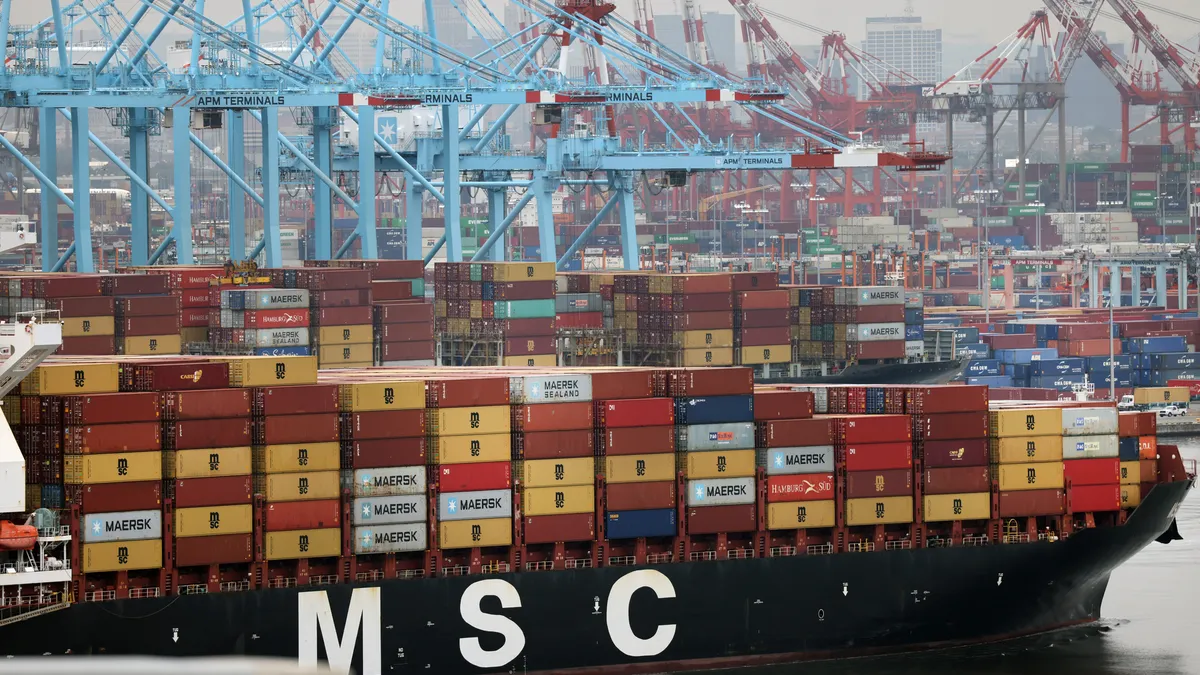Dive Brief:
- DB Schenker and MSC signed an agreement to transport at least 30,000 TEUs of cargo with net-zero emissions in 2023, part of a move to decarbonize ocean freight.
- The forwarder secured 12,000 metric tons of biofuel, which will be mixed with fossil-based marine fuels for all of its less-than-container load, full-container-load and refrigerated containers shipments with MSC, according to the release.
- Customers of DB Schenker can pay a surcharge to transport shipments with sustainable fuels. Shippers also have the option to receive a certified proof of the emission reduction to help with ESG reporting.
Dive Insight:
With more companies being tasked to measure their carbon emissions, customers are asking for greener solutions from their transportation providers.
“We notice an increasing number of customers showing interest in more climate-friendly solutions for their supply chains,” a DB Schenker spokesperson told Supply Chain Dive in an email.
Under the new agreement, shippers can select the option for biofuel at a premium.
"CO2-neutral transports are feasible right now and not just in a far future when further technological advancements will have been made [like fuels]," the spokesperson said. "Already today, our customers have a choice just like in a supermarket — they can opt for the conventional fuel or select the biofuel option."
The agreement between MSC and DB Schenker isn't the first. Last year, the freight forwarder teamed up with CMA CGM to offer net-zero carbon ocean container transport for its customers. The purchase contract was for over 2,500 tons of biofuel. The spokesperson further noted that DB Schenker is “open to further partnerships.”
DB Schenker aims to utilize sustainable fuels across multiple modes, and also offers the option for sustainable aviation fuel on air cargo shipments.














